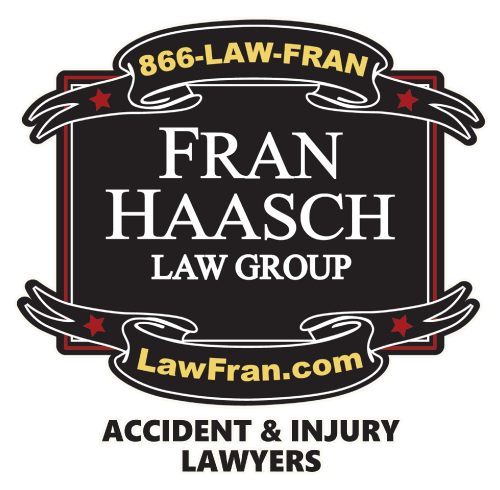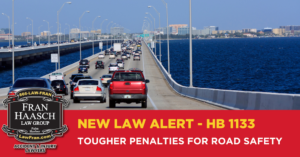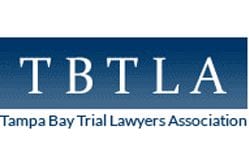How To Get A Crash Report For A Florida Car Accident
Obtaining a Florida crash report following a car accident is both crucial and relatively straightforward. These reports provide a detailed account of the incident, often including factors like the involved parties, the circumstances surrounding the accident, and any injuries sustained. Though not admissible as evidence in litigation or at trial, these reports can play a pivotal role in pre-litigation investigations and insurance claims.
In Florida, these reports are typically authored by the investigating law enforcement officers who responded to your accident. Law enforcement agencies have ten days to submit crash reports after an accident. The following sections will guide you through the necessary steps to procure a crash report in the state of Florida.

Contacting the Relevant Authorities
After a car accident in Florida, it’s important to know which authority will have your crash report. This could be the local police department, the sheriff’s office, or the Florida Highway Patrol (FHP).
Identifying the Authority In Charge
The determination of who is in charge of your accident report depends on where the accident happened and who responded to the scene. If the accident happened within city limits, it’s likely the local police department filed the report. For accidents that occurred outside of city limits, the county sheriff’s office or the FHP would be in charge.
Information Required When Making a Request
When requesting a crash report, you will need to provide specific information. This includes your name, the date of the accident, and the report number if you have it. In some cases, you might be asked for additional information, such as the location of the accident or the names of the other parties involved.
Potential Fees Involved
Obtaining a crash report in Florida usually requires a fee. The fee amount varies depending on the authority you are requesting it from. For instance, the FHP charges $10 per report. It’s best to contact the relevant authority directly for the most accurate fee information.

Online Retrieval of Accident Reports
In Florida, obtaining a crash report online is a convenient alternative to requesting it in person or via mail. Several websites offer this service, including official government portals and third-party providers.
Websites Where Reports Can be Obtained
The official website of the Florida Highway Patrol (FHP) allows you to purchase and download crash reports. Alternatively, you can utilize BuyCrash.com, a third-party website that partners with law enforcement agencies across the country, including Florida, to provide crash reports online.
Steps to Follow on the Website
To obtain a crash report from the FHP’s website or BuyCrash.com, you need to follow a set of standard procedures. First, navigate to the crash reports section. Enter the necessary details, such as your name, the date of the accident, and the report number, if available. You might also need to provide additional information, like the accident location or the names of the other parties involved. After entering all the required details, follow the instructions to make a payment and download the report.
Duration Before the Report Becomes Available Online
The availability of the crash report online varies, but it generally takes about 7 to 10 days after the accident for the report to be uploaded. Please note that this is an approximate timeline and can vary based on the specific circumstances of the accident and the agency handling the report. Always contact the relevant authority if you’re unsure about when your report will be available.

Obtaining Reports in Person or Via Mail
If you prefer a more traditional method or simply do not have access to the internet, obtaining your crash report in person or via mail is equally efficient.
Where to Go or Address to Mail Your Request
To request your crash report in person, you will need to visit the office of the agency that handled your accident. This could be your local police department, county sheriff’s office, or the Florida Highway Patrol (FHP) station. The specific address can usually be found on the agency’s official website.
If you choose to request the report via mail, you should address your request to the same agency. Include in your request the necessary information, including your address, for the report to be mailed back to you.
Documents and Information Needed
When obtaining a crash report in person or via mail, you will typically need to provide the same information as you would for an online request. This includes your name, the date of the accident, and the report number, if available. Some agencies may require additional information, such as the location of the accident or the names of the other parties involved.
In your mail, you should include a written request for the report stating the information above and a check or money order for the fee.
Expected Wait Time
The wait time for receiving your crash report in person can vary greatly depending on the agency and its workload. It’s generally best to call ahead and check the expected wait time.
If you’re requesting the report via mail, the process generally takes longer due to the added transit time. It can take anywhere from two weeks to a month for you to receive your report, depending on the speed of the mail service and the processing time at the agency.

Obtaining the Report Through a Personal Injury Attorney
Another efficient way of acquiring your Florida accident report is through a personal injury attorney.
Why Use an Attorney?
A qualified car accident attorney can save you time and frustration by obtaining the report on your behalf. They are experienced in dealing with law enforcement agencies and know the procedures that need to be followed. Moreover, an attorney can review the report, explain what it means, and how it can impact your personal injury claim.
How Does the Process Work?
To start the process, you’ll need to provide your lawyer with the necessary information about the accident, such as the date, location, and any other specifics you have. Your attorney will then make a formal request to the appropriate agency. Some law firms might cover the cost of obtaining the report as part of their services, but it’s best to discuss this upfront.
Timeframe
The timeframe of receiving the report through a lawyer can vary depending on the processing time of the law enforcement agency and the attorney’s schedule. However, as attorneys are often more familiar with the process and may have established relationships with the reporting agencies, this can sometimes expedite the process.
Remember, choosing the right attorney can make a significant difference in handling your claim. Therefore, it’s essential to select someone experienced, reliable, and well-versed in Florida’s traffic laws and personal injury claims.
Can I Self Report an Accident?
Yes, in Florida, it’s possible to self-report a car accident. If a law enforcement officer hasn’t attended the scene, or if the accident happened on private property, you may need to file a self-report. This is formally known as a Driver Report of a Traffic Crash (Form HSMV 90011S).
The form can be downloaded from the Florida Highway Safety and Motor Vehicles (FLHSMV) website. It’s crucial to fill it out accurately with all pertinent details and submit it to the FLHSMV within ten days of the accident. However, it’s recommended to consult with your insurance provider or legal advisor before making a self-report to understand any potential impacts on your insurance or legal standing.

Can I Get a Copy of My Report From the Florida Department Of Transportation?
You can acquire crash records from the Florida Department of Transportation (FDOT) for accidents occurring on state roads, but local road incidents require contacting the relevant local law enforcement. FDOT provides requests through their online Crash Data Query Tool, by mail to the FDOT Traffic Records Office (which needs a written request, a copy of your driver’s license or ID, and a $12 fee), or in person at any FDOT District Office. The report is available for purchase 60 days post-accident.
Understanding the Accident Report
Deciphering an accident report can be challenging due to the use of specific terminologies and codes. However, understanding the basics of these reports can make it easier to review the details of your accident.
Explanation of Commonly Used Terminologies in the Report
Accident reports often contain terms or abbreviations that may not be immediately understandable. Some common terms include:
- `Vehicle 1` and `Vehicle 2`: These terms identify the vehicles involved in the accident. ‘Vehicle 1’ is typically the vehicle that the police believe to be at fault.
- `Contributory Cause`: This term denotes any action that contributed to the accident but was not the primary cause.
- `Non-Contact Vehicle`: This term refers to any vehicle that contributed to the accident without physically being involved in the collision.
- `Injury Severity`: This term classifies the severity of any injuries caused by the accident, ranging from ‘No Injury’ (0) to ‘Fatal Injury’ (4).
What Are the Legal Implications Following a Car Accident?
Navigating the legal landscape after a vehicle accident can be complex and intimidating. The accident report, while not permissible as evidence in a court trial, is a pivotal document during pre-litigation stages. It holds considerable sway over your insurance claim and any potential legal procedures that may follow, highlighting the need for keen scrutiny and understanding of this report.
How the Accident Report Can Affect Your Insurance Claim
The accident report provides a detailed account of the incident, including possible determinations of fault. Insurance companies scrutinize these reports closely when processing claims. If the report suggests that you were at fault, it could impact your claim negatively and may even lead to an increase in your insurance premiums. Conversely, if the report indicates the other party was at fault, it could strengthen your claim and potentially lead to a more favorable settlement. In some cases, the accident report could also reveal shared fault, which can complicate matters and lead to a reduction in the settlement amount.
Importance of Consulting With a Legal Professional
Given the potential implications of the accident report on your insurance claim, it’s advisable to consult with a legal professional. A legal professional can help you understand the report and can advocate for you if there are discrepancies or if you disagree with the determination of fault. It’s particularly important to seek legal advice if there are serious injuries involved, significant damage to property, or if the circumstances of the accident are complex. An experienced lawyer can also navigate the claims process with your insurance company, helping to increase your chances of receiving a fair settlement.
Remember, understanding your legal rights and the implications of the accident report can make a significant difference to the outcome of your insurance claim. Therefore, don’t hesitate to seek professional legal advice from experienced attorneys like those at the Fran Haasch Law Group.

Your Trusted Car Accident Lawyers
In conclusion, if you’ve been involved in an accident, it’s crucial to understand the importance and implications of the accident report. The Fran Haasch Law Group is here to help you navigate this process.
Contact us today for a free consultation, and let our experienced attorneys guide you through the complexities of your claim, ensuring your legal rights are protected and you receive the settlement you deserve.















